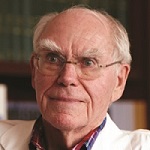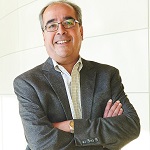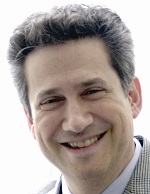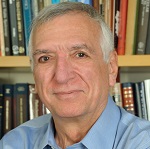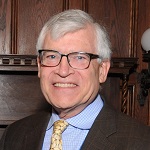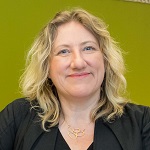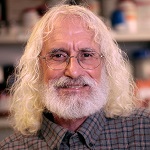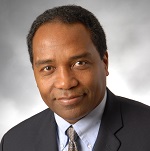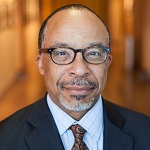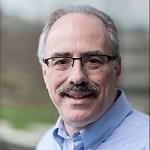At each year’s ASH annual meeting, the Society bestows its most prestigious awards on those hematologists whose work has had a profound influence on the field. Read on to learn more about the 2019 Honorific awardees, their contributions to hematology, and when and where each award will be presented this year in Orlando.
Richard Aster, MD
WHO: Richard Aster, MD, Medical College of Wisconsin and Versiti Blood Center of Wisconsin
WHAT: Wallace H. Coulter Award for Lifetime Achievement in Hematology
WHEN: Sunday, December 8, 2019, at 1:30 p.m.
WHERE: Hall D, Orange County Convention Center
WHY: Dr. Aster is recognized for his significant contributions to the understanding of immune diseases that affect blood cells, especially those involving platelets. He has contributed to the development of clinical standards for the diagnosis of immune thrombocytopenia and heparin-induced thrombocytopenia-thrombosis, moving the field forward through research, mentorship, and education throughout his 62-year career.
WORDS OF WISDOM: “Many hematologic disorders, genetic or otherwise, were among the first to have their pathogeneses worked out, and effective treatments developed because blood is so readily accessible and easy to work with in the laboratory. This is still true today, and anyone interested in a medical research career would do well to consider hematology as a steppingstone. Life (and biology) is now much more complicated than it used to be, so for a career in laboratory-based research, a combined MD/PhD degree is almost essential.”
Sriram Krishnaswamy, PhD
WHO: Sriram Krishnaswamy, PhD, Children’s Hospital of Philadelphia and Perelman School of Medicine, University of Pennsylvania School of Medicine
WHAT: Ernest Beutler Lecture and Prize
WHEN: Monday, December 9, 2019, at 1:30 p.m.
WHERE: Hall D, Orange County Convention Center
WHY: Dr. Krishnaswamy will be recognized for his studies of mechanisms by which proteins interact to regulate enzyme function, predominantly in the context of blood coagulation. He is an internationally acclaimed authority on the function of surface-dependent coagulation complexes, which are the targets of new oral anticoagulants, and has helped set the stage for establishing drug targets and development, including aptamers and novel nonactive site anticoagulants.
WORDS OF WISDOM: “The future of hematology promises the development of new technologies to solve complex biological questions and innovative strategies to treat complex human diseases. Many of the low hanging fruit may be gone, but the difficult questions that remain are the ones to be broached for the next generation of scientific advancement. Solutions to these big questions will require enthusiastic, creative, and talented investigation into basic and translational science.”
Jeffrey I_ Weitz, MD
WHO: Jeffrey I. Weitz, MD, McMaster University
WHAT: Ernest Beutler Lecture and Prize
WHEN: Monday, December 9, 2019, at 1:30 p.m.
WHERE: Hall D, Orange County Convention Center
WHY: Dr. Weitz is being recognized for his work in clinical and translational science, namely research on why blood clots occur in certain situations, such as in patients with cancer or those with mechanical heart valves, and how to prevent or treat them. His work prompted the development and licensing of new anticoagulants that streamline the prevention and treatment of thrombosis.
WORDS OF WISDOM: “This is an exciting time for hematology. There are so many advances, including those in anticoagulation, hemophilia management, and the treatment of cancer. Hematology is the ideal choice for those who want to bridge laboratory investigation with clinical advances. It is also important to note that support, training, and networking opportunities are available to help early-career professionals build skills and relationships within the field.”
William Eaton, MD, PhD
WHO: William Eaton, MD, PhD, National Institute of Diabetes and Digestive and Kidney Diseases (NIDDK), National Institutes of Health (NIH)
WHAT: Henry M. Stratton Medal
WHEN: Tuesday, December 10, 2019, at 9:30 a.m.
WHERE: Hall D, Orange County Convention Center
WHY: Dr. Eaton is receiving this award in recognition of his pioneering biochemical and biophysical research into sickle cell disease pathophysiology and drug therapy. He described the sickle hemoglobin polymerization reaction that causes red blood cell sickling and delineated the protective effects of fetal hemoglobin. His research contributed to the development of hydroxyurea, which helps slow sickling of red cells by inducing fetal hemoglobin synthesis, and the creation of a sensitive test for measuring the time it takes for a blood cell to sickle.
WORDS OF WISDOM: “Follow your passion. The vast majority of sickle cell patients … do not have access to advanced medical facilities for such treatment. This is my motivation to use high-throughput screening to try to discover an inexpensive oral drug that can be used worldwide.”
Richard A_ Larson, MD
WHO: Richard A. Larson, MD, University of Chicago
WHAT: Henry M. Stratton Medal
WHEN: Tuesday, December 10, 2019, at 9:30 a.m.
WHERE: Hall D, Orange County Convention Center
WHY: Dr. Larson has made significant discoveries in understanding the genetic basis of leukemia and translating it into more effective treatments, inspiring therapeutic concepts for adults with acute lymphoblastic leukemia that are now known as the “Larson regimen.” He has designed and led groundbreaking therapeutic trials for patients with leukemia via the Leukemia Committee of the Cancer and Leukemia Group B (today the Alliance for Clinical Trials in Oncology), completing an array of important clinical trials that have been translated into clinical practice.
WORDS OF WISDOM: “These are exciting times, not just for those of us working to improve outcomes for malignant blood diseases but across the spectrum of hematologic disorders. Hematology offers tremendous opportunities that overlap with vascular biology, transplantation, immunology, infectious diseases, and many other important areas such as global health. My advice would be to try to learn as much as possible about the biology of your disease of interest, assemble a collaborative team, and think creatively about how to test treatment strategies and specific interventions to improve the outcomes in patients.”
Emmanuelle Passegué, PhD
WHO: Emmanuelle Passegué, PhD, Columbia University Irving Medical Center
WHAT: William Dameshek Prize
WHEN: Tuesday, December 10, 2019, at 9:30 a.m.
WHERE: Hall D, Orange County Convention Center
WHY: Dr. Passegué is being recognized for her pivotal contributions to the understanding of the biology of blood-forming stem cells. She discovered a potential strategy for correcting impaired blood production in older people by identifying specific biological mechanisms that are altered when stem cells age and become dysfunctional. She also defined the unique susceptibility of stem cells to specific types of DNA damage and described how their particular repair mechanisms can render them vulnerable to disease-causing mutations.
WORDS OF WISDOM: “Go for it! [Hematology] is an exciting field that is at the forefront of important fundamental and clinical discoveries and it is a mature enough field with established guidelines to make meaningful discoveries. It is a great training ground with outstanding mentors that respect diversity, and it is also a lot of fun.”
Philip Greenberg, MD
WHO: Philip Greenberg, MD, Fred Hutchinson Cancer Research Center and University of Washington in Seattle
WHAT: E. Donnall Thomas Lecture and Prize
WHEN: Monday, December 9, 2019, at 9:00 a.m.
WHERE: Hall D, Orange County Convention Center
WHY: Dr. Greenberg is being awarded this lecture and prize in recognition of his pioneering contributions to the development of T-cell adoptive immune therapy, the process by which T cells are equipped with receptors that target and eradicate disease cells. He established the concept and mechanisms of isolating antigen-specific T cells in the laboratory and reproducing them to the numbers needed to observe their activity for targeting a malignancy in vivo, which has allowed researchers to explore the biology of cells in detail to better understand how they function, and the obstacles that may interfere with their activity.
WORDS OF WISDOM: “Opportunities now are greater than they have ever been. Whether it be T-cell therapy or pharmacology and medicinal chemistry with small-drug molecular targeting, we are learning almost daily about how to better treat hematologic malignancies. I believe it is essential to get adequate basic training to participate in these efforts, to pick a question or problem to solve that appeals to you, and to run with it.”
Griffin Rodgers, MD
WHO: Griffin Rodgers, MD, National Institute of Diabetes and Digestive and Kidney Diseases (NIDDK), National Institutes of Health (NIH)
WHAT: ASH Award for Leadership in Promoting Diversity
WHEN: Sunday, December 8, 2019, at 1:30 p.m.
WHERE: Hall D, Orange County Convention Center
WHY: Dr. Rodgers is recognized for his work to achieve broad representation of diverse populations both in the scientific workforce and among clinical trial participants, as well as to increase diversity in NIDDK.
WORDS OF WISDOM: “Follow your passions. This is true in my own life, and it is true of the best of my colleagues. Staying true to yourself is the only way to be your best in medicine, science, or any other part of your life. Never lose touch with what first inspired, stimulated, and excited you about medicine and about the field you choose because it will take you places you may not think you can go.”
Michael R_ DeBaun, MD
WHO: Michael R. DeBaun, MD, Vanderbilt University School of Medicine
WHAT: ASH Mentor Award
WHEN: Sunday, December 8, 2019, at 1:30 p.m.
WHERE: Hall D, Orange County Convention Center
WHY: Dr. DeBaun is being recognized for his profound influence on his mentees’ intellectual growth and career development. He has mentored people at all education levels, from high school students with sickle cell disease (SCD) to tenured faculty members at multiple medical schools. His mentees have attained academic leadership positions nationally and internationally, becoming leaders of SCD research teams studying prevention of strokes in children with SCD in Nigeria and researching how to decrease pregnancy-related deaths in women with SCD in Ghana.
WORDS OF WISDOM: “Know yourself and what makes you go to sleep late at night and wake up early in the morning to advance the care of your patients. Then, have fun doing the hard work.”
Leonard Zon, MD
WHO: Leonard Zon, MD, Harvard Medical School and Boston Children’s Hospital
WHAT: ASH Mentor Award
WHEN: Sunday, December 8, 2019, at 1:30 p.m.
WHERE: Hall D, Orange County Convention Center
WHY: Dr. Zon receives this award in recognition of his mentorship of trainees who have gone on to establish their own funded laboratories or clinical programs. He mentors people at all stages of their careers including students and technicians, as well as faculty members, through fun workshops and techniques. He organizes events such as a postdoc mentoring breakfast and “technician’s tea” and has developed core modules focused on topics such as developing a laboratory’s budget, practicing an elevator pitch, writing a grant, and presenting at meetings.
WORDS OF WISDOM: “My daughter is now applying for hematology/oncology fellowships this year. I told her to work with the best mentors she can find and then use her skill set to be the best mentor she can be.”

